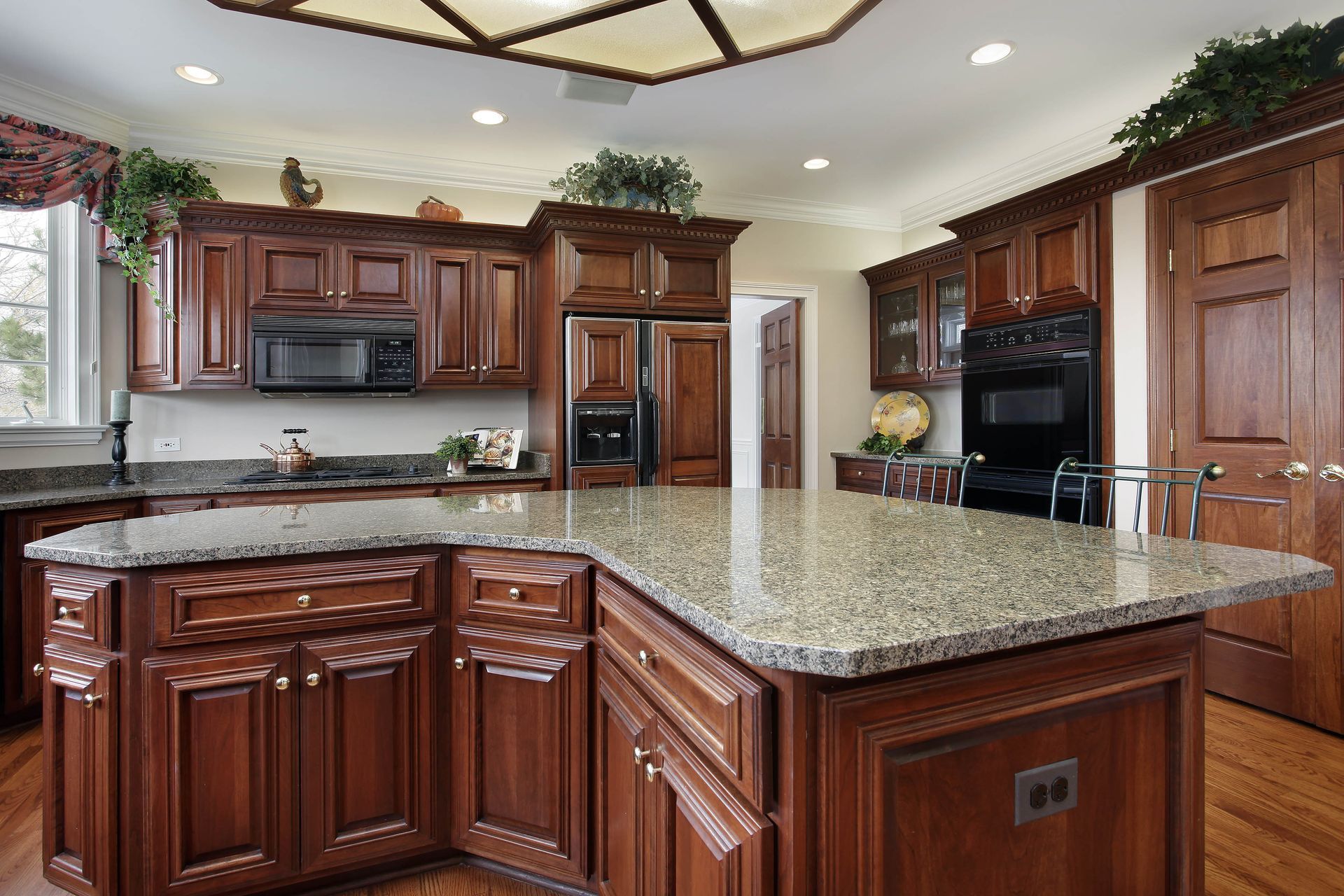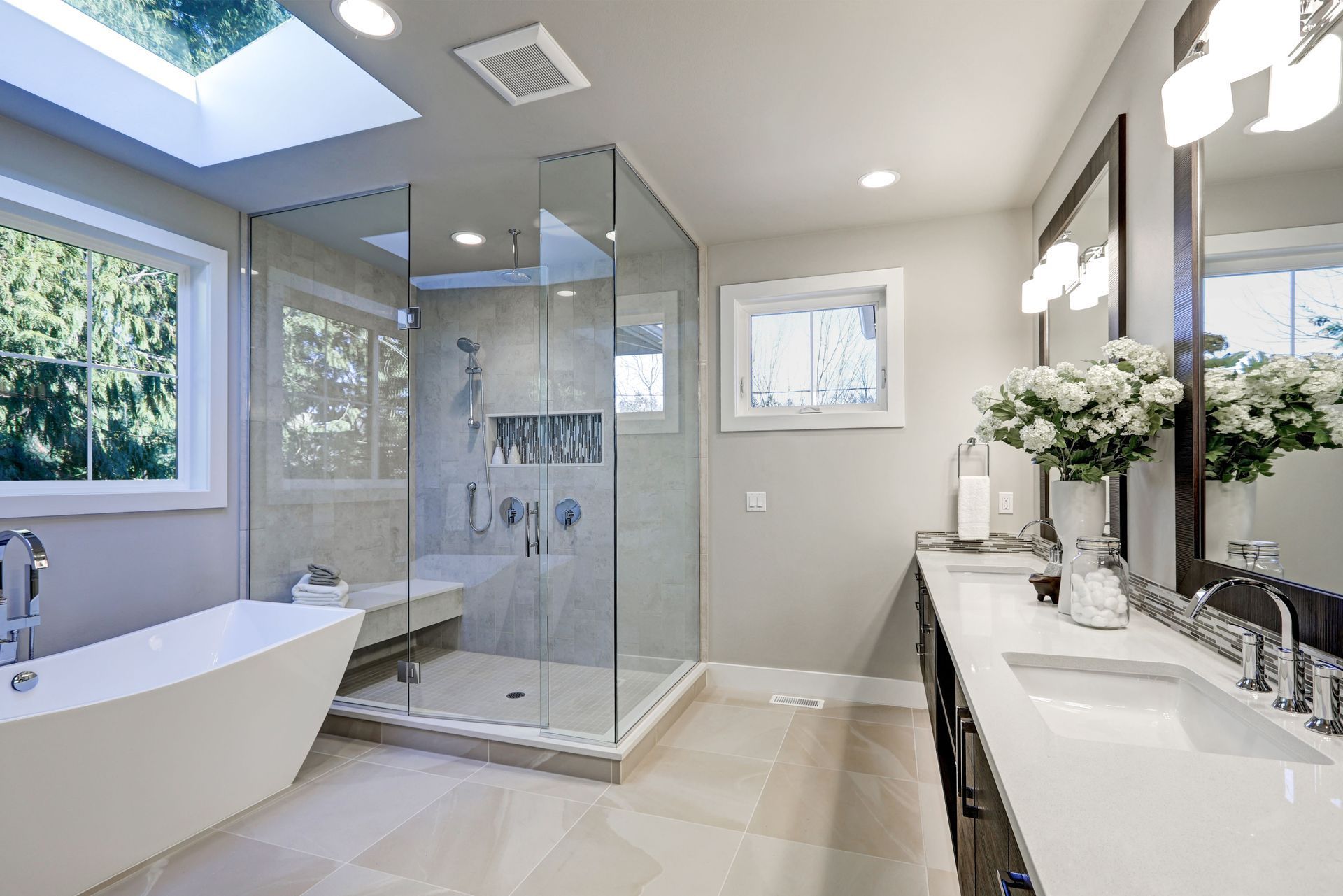September 26, 2025
A kitchen remodel is not only about aesthetics and functionality—it's a strategic opportunity to enhance your home's energy efficiency. This article explores the various ways a kitchen renovation can lead to substantial energy savings, improve comfort, and contribute to environmental sustainability. The kitchen is often the hub of a home, filled with numerous appliances that consume a significant amount of energy. With rising energy costs and growing environmental concerns, homeowners are increasingly motivated to seek methods that reduce utility bills while promoting a greener lifestyle. According to the National Association of Realtors, 19% of consumers remodel to improve energy efficiency.
Energy-Efficient Appliances
Choosing ENERGY STAR Certified Appliances
When undertaking a kitchen remodel, considering ENERGY STAR-certified appliances is a prudent choice. These appliances are specifically designed to use less energy and water while still providing superior performance. For example, an ENERGY STAR refrigerator uses about 10-15% less energy than non-certified models. This reduction in energy consumption translates to significant savings on electricity bills over time. By selecting appliances that bear this certification, homeowners can effectively lower their household carbon footprint.
Many homeowners today are prioritizing energy efficiency in their home improvement projects. As part of a kitchen remodel, upgrading to ENERGY STAR-certified appliances can lead to noticeable energy savings. By consuming less power, these appliances contribute to a more sustainable home environment. Furthermore, the reduction in energy usage also aligns with broader environmental goals, helping combat issues such as global warming. This approach not only benefits the homeowner but also supports a healthier planet.
ENERGY STAR appliances also come with enhanced features that improve overall home convenience. For instance, many certified dishwashers offer advanced cleaning capabilities while using minimal water. Similarly, modern energy-efficient washing machines provide larger capacity options with reduced wash times. These innovations ensure that homeowners are not compromising on functionality when choosing energy-efficient options. Thus, incorporating ENERGY STAR-certified appliances in a kitchen remodel is a win-win for efficiency and performance.
The Benefits of Induction Cooktops
Induction cooktops are another excellent choice for an energy-efficient kitchen remodel. Unlike traditional gas or electric stoves, induction cooktops use electromagnetic energy to directly heat cookware, which results in quicker heating times and reduced energy waste. This method ensures that energy is not lost in heating the air around the pot, making it a more efficient cooking solution. Many professional chefs prefer induction cooktops for their precise temperature control and faster cooking times. This combination of efficiency and functionality makes induction cooktops a popular choice among eco-conscious homeowners.
The energy savings with induction cooktops can be quite notable, as they use about 90% of the heat generated, compared to just 70% for electric and 40% for gas. This increased efficiency not only speeds up the cooking process but also reduces the overall heat in the kitchen, contributing to a cooler environment. Homeowners who spend a lot of time cooking will especially appreciate these benefits when planning their kitchen remodel. With an emphasis on sustainability, induction cooktops are an investment that offers both environmental and practical advantages. Additionally, safety features such as automatic shut-offs further enhance their appeal.
Moreover, the sleek design of induction cooktops adds a modern touch to any kitchen space. Their flat, glass surface is easy to clean and integrates seamlessly with a variety of kitchen styles. This aesthetic benefit, combined with their energy efficiency, makes induction cooktops an attractive option for those looking to modernize their kitchen while enhancing its sustainability. As part of a comprehensive energy-efficient kitchen remodel, induction cooktops play a significant role in reducing energy consumption and increasing kitchen functionality.
Improved Insulation and Ventilation
The Role of Wall and Ceiling Insulation
Proper insulation in the kitchen can significantly impact energy efficiency, often overlooked during remodels. Adding or upgrading insulation in walls and ceilings can help maintain desired temperatures by reducing heat loss in winter and heat gain in summer. This stability means less reliance on heating and cooling systems, resulting in lower energy bills. Insulating materials such as spray foam or rigid foam boards can be used for optimal thermal resistance. Effective insulation contributes to a more comfortable and energy-efficient home environment all year round.
Investing in insulation improvements is not limited to energy savings; it also enhances soundproofing. This dual benefit is particularly advantageous in a bustling kitchen area. A well-insulated kitchen can buffer noise from appliances, making the space quieter and more pleasant. Reducing noise pollution while improving energy efficiency can contribute to a more enjoyable cooking and dining experience. Homeowners should consult with professionals to choose the right type and thickness of insulation for their specific needs and regional climate.
Another advantage of proper insulation is its long-term cost-effectiveness. Although initial installation might seem a costly undertaking, the reduced energy expenditure ensures that homeowners recoup these costs over time. This financial aspect, coupled with increased home value and comfort, underscores the importance of including insulation in a kitchen remodel. As awareness of environmental sustainability grows, more homeowners are recognizing the value of efficient insulation in their energy-saving efforts. Proper insulation is a cornerstone of any remodel aiming to enhance home energy performance.
Installing Energy-efficient Windows
Windows are another critical consideration when focusing on energy efficiency during a kitchen remodel. Energy-efficient windows are designed to minimize air leaks and provide better insulation to reduce the energy needed for heating and cooling. High-performance glazing options such as double or triple-pane glass can make a significant difference in energy conservation. Additionally, features such as low-E coatings help in reflecting heat, keeping interiors comfortable irrespective of the weather outside. Investing in quality windows is an effective way to enhance a home's energy efficiency both immediately and in the long run.
Replacing old windows with new efficient models also improves indoor comfort by reducing drafts and maintaining a consistent temperature within the home. This improvement is especially important in a kitchen setting where temperature fluctuations can affect cooking and food storage. By limiting temperature swings, energy-efficient windows create a more stable indoor environment, which can enhance the overall functionality of a kitchen. Moreover, many of these windows are also effective in blocking UV rays, protecting interiors from sun damage and fading.
Beyond practical benefits, energy-efficient windows can aesthetically improve a kitchen. Modern designs often come with a variety of styles and materials, enabling homeowners to match their windows with other kitchen features seamlessly. Whether selecting frames made of vinyl, wood, or composite materials, the options are versatile enough to cater to various preferences. Additionally, incorporating larger windows or unique window treatments can maximize natural light, further reducing the need for artificial lighting during the day. Thus, installing energy-efficient windows is both a practical and aesthetic consideration in a kitchen remodel aimed at boosting energy efficiency.
Lighting Solutions
Switching to LED Lighting
Lighting is a crucial aspect in enhancing a kitchen's energy efficiency. LED lighting is a superior choice compared to traditional incandescent or fluorescent bulbs. LEDs are more energy-efficient, converting the majority of their energy into light rather than heat, resulting in longer operational life and reduced replacement costs. Homeowners can save up to 75% on lighting energy expenses by switching to LED bulbs. In addition, LED bulbs offer higher durability, minimizing long-term environmental waste and contributing to sustainability efforts.
Undertaking a kitchen remodel with energy efficiency in mind can provide long-term savings on utility bills and increase the overall value of your home. By integrating energy-efficient appliances, enhancing insulation, optimizing lighting solutions, implementing water conservation techniques, using eco-friendly materials, and integrating smart technologies, homeowners can significantly reduce their carbon footprint and enjoy a more sustainable lifestyle. A well-planned remodel results in a comfortable and functional kitchen space that supports both environmental goals and everyday living. By making these thoughtful changes, homeowners contribute to the larger effort of creating sustainable, energy-efficient living environments. Be sure to reach out to FDD Cabinets today for more information on one of the top kitchen remodeling companies !






